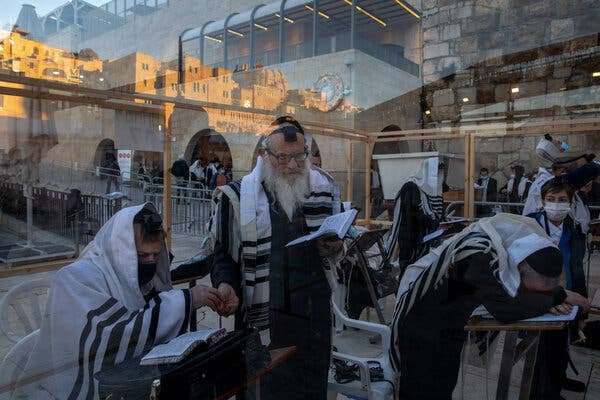
Below is a briefer version of an article which appeared in the New York Times this past week. At first glance, it appears as a newsy or perhaps as a political update in the ongoing religious tensions and conflicts among the various Jewish communities in Israel today (both between the secular and religious communities). There is a certain not so hidden message that what occurs (or rages) in Israel has ramifications for the Jewish people in countries and places not in Israel proper (also known as the Diaspora).
We will discuss this further, but for the moment, let’s think back to the Book of Daniel and the Scroll of Esther in that while what originally transpired (both a destruction and exile) in the Land of Israel had ‘incredible bearing and effect’ on the Jews of Persia, yet the Land and these two communities remained inextricably linked both by identity, kinship and yes, also by religious coercion.”
It might even appear that these issues of “identity, kinship and religious coercion remain in effect to this very day. We will discuss this further as the Passover nears and the long and arduous Exodus narrative appears to change before our eyes . . .
Warm Regards,
Rabbi Seth Frisch
Israeli Court Says Converts to Non-Orthodox Judaism Can Claim Citizenship
People who convert in Israel to Reform or Conservative Judaism have a right to citizenship, the Supreme Court ruled, chipping at the power of Orthodox authorities that see them as non-Jewish.
By Patrick Kingsley / Published March 1, 2021 / Updated March 3, 2021
JERUSALEM — The question of who is and isn’t a Jew has always been a subject of debate within Israel. Since the state was founded, the government has largely deferred to Orthodox Jewish authorities, who do not view converts to more liberal forms of Judaism as Jewish.
But on Monday, the Israeli Supreme Court struck a symbolic blow for a more pluralistic vision of Jewish identity: It granted the right to automatic citizenship to foreigners who convert within the state of Israel to Conservative, also known as Masorti, or Reform Judaism.
Israel’s “Law of Return” gives foreign-born Jews, or anyone with a Jewish parent, grandparent or spouse, the automatic right to claim Israeli citizenship. Those who convert to non-Orthodox Judaism in another country have been able to gain Israeli citizenship for decades.
One of Israel’s two chief rabbis, Yitzhak Yosef, called it a “a deeply regrettable decision,” and said that conversions to the Reform and Conservative communities were “nothing but counterfeit Judaism.”
“Public representatives are to be expected to work quickly to correct this legislation,” he said, “and the sooner they do so the better.’‘
There are still restrictions on the marriage of non-Orthodox converts to Judaism, since this area is controlled by Israel’s chief rabbinate, which does not recognize Reform or Conservative Judaism. There is no civil marriage in Israel.
But for non-Orthodox Jews the Supreme Court decision constituted a moment of qualified relief — both inside Israel and among the diaspora.
“It affirms that Israel is a homeland for all Jews,” said Rabbi Jacob Blumenthal, the joint head of an international association of rabbis who practice Conservative Judaism, the United Synagogue of Conservative Judaism. “The ruling is an important step in guaranteeing religious freedom in Israel and recognizing the diversity of the Jewish people and its practices in Israel and throughout the world.”
Within Israel, the overwhelming majority of Jews are either Orthodox or secular, but liberal rabbis said that there had already been an uptick in the number of non-Jews seeking to convert to more liberal streams of Judaism.
